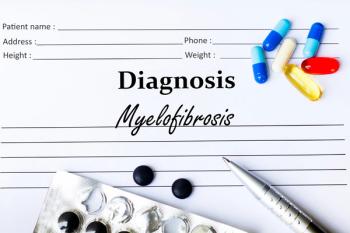
Role of Pharmacists in the Management of CLL
Ryan Jacobs, MD, and Bhavesh Shah, RPh, BCOP, comment on the role of pharmacists in clinical practice for managing patients with CLL.
Episodes in this series

Bhavesh Shah, RPh, BCOP: We talked about some of the toxicities of managing hypertension and having the appropriate blood counts for these patients. There are even data for switching these patients. How do you utilize your pharmacist? Do you have that pharmacist support that helps you manage some of these patients who are on oral agents?
Ryan Jacobs, MD: We have great pharmacy support at Levine Cancer Institute. We round with pharmacists in the hospital, and we always have a PharmD in our lymphoma clinic. I definitely use that very helpful resource of having a pharmacist in clinic with me. It starts with them educating the patient about chemotherapy. Pharmacists are great at doing that. They know the drugs better than I do in many circumstances. It’s part of that process: we review the existing medications together to make sure there are no interactions that need to be considered in terms of potential dose reductions or switching them from certain medicine they’re on to ones that would be better taken with the BTK [Bruton tyrosine kinase] inhibitor that we’ve chosen. That’s primarily going to be a C38 coadministration issue.
Then I make sure the patient knows to give us a call anytime they start a new treatment so we can run that same interaction. Then I have a separate pharmacist in our specialty pharmacy who is very attuned to seeking out philanthropic support for co-pay assistance, and that’s been such a wonderful resource to have for patients who maybe get quoted high co-pays for medicines that are expensive. The overwhelming majority of patients out there can have co-pay assist students engaged, and they get their drug at a very reasonable co-pay.
Bhavesh Shah, RPh, BCOP: We have a similar model. We have the same up-front education for patients, and we know these patients are going to be on them for the long term. As you mentioned, there are data out 50 months and beyond in these patients. It’s amazing how when we looked at the CML [chronic myeloid leukemia] data, there was always this drop-off in adherence, and we knew that it was directly tied to overall survival and a lot of the clinical outcomes that these patients have. Even though these patients are on stable therapy and have stable adverse effects, there’s always going to be new therapies, as you said, and we need to make sure that there are no drug interactions. Knowing that hypertension can happen at such a long time frame beyond 12 months, there’s definitely this oversight that you need to have for patients to have that extra hand to make sure there are no adherence issues and that the toxicities are being monitored on a frequent basis.
You’re absolutely right in terms of having that pharmacist support in managing patients on oral therapy. A lot of times with what we see in a clinical trial, it’s hard to see the same outcomes in real-world evidence. Even with a lot of the companies I’ve spoken to aren’t able to see the same persistence even in different types of models. For patients who have to go to another specialty pharmacy vs their own health system or specialty pharmacy, there’s definitely difference in management that happens for patients. I feel like we’ve seen much better adherence, better persistence, and better outcomes. It’s important to have that model and to have a pharmacist involved in the care of these patients who are on oral therapy.
Transcript Edited for Clarity
Newsletter
Stay informed on drug updates, treatment guidelines, and pharmacy practice trends—subscribe to Pharmacy Times for weekly clinical insights.



























